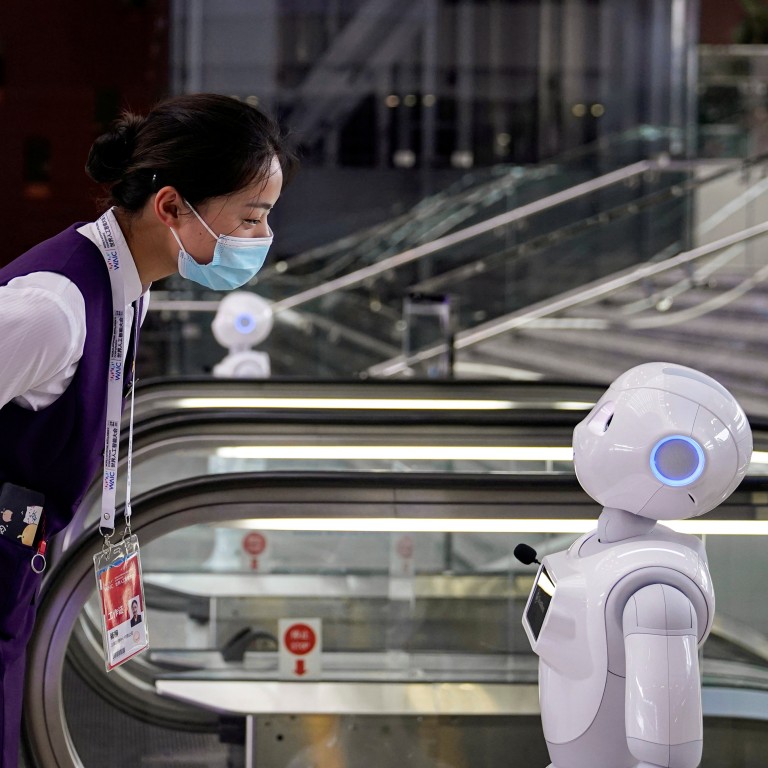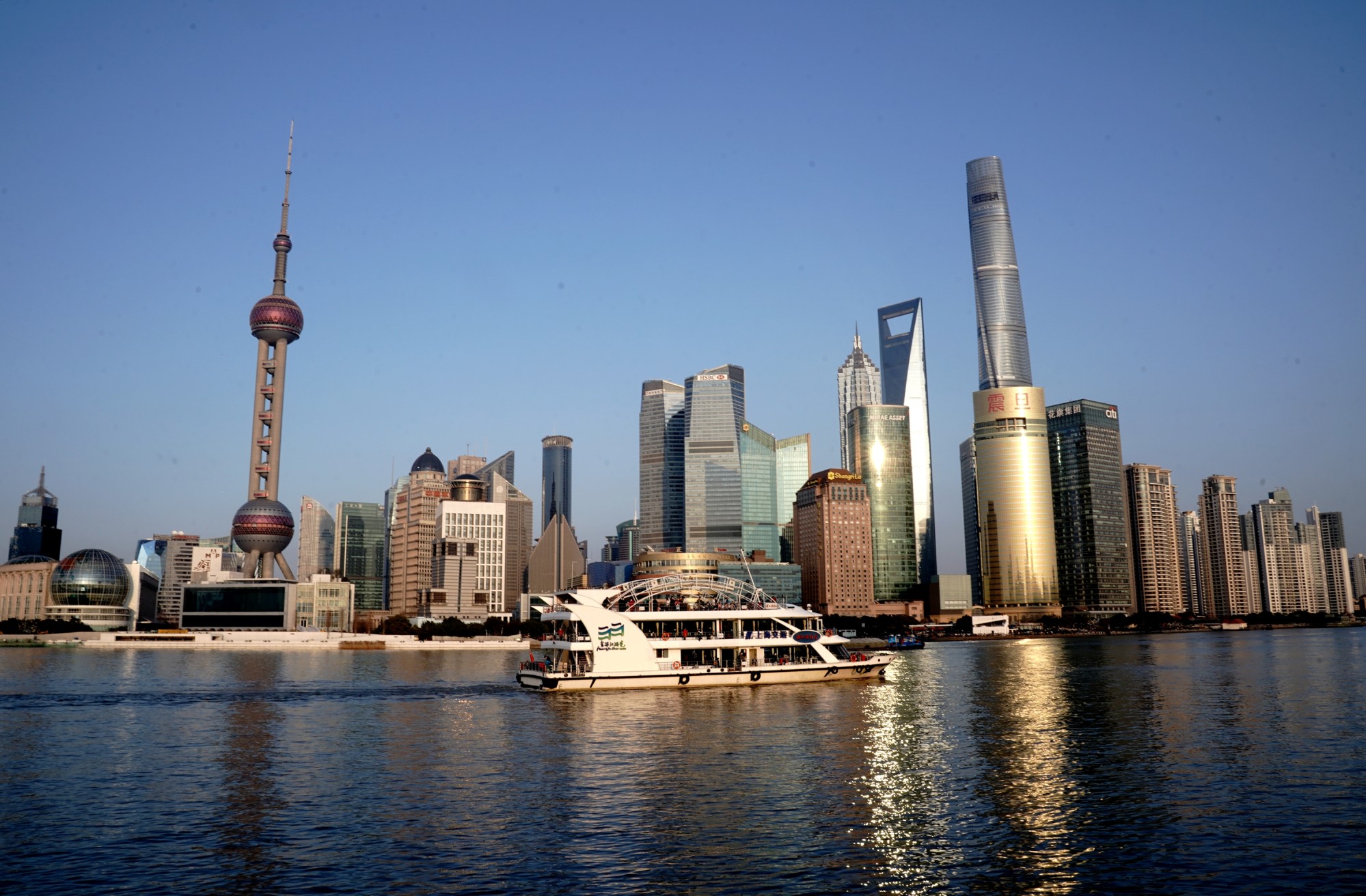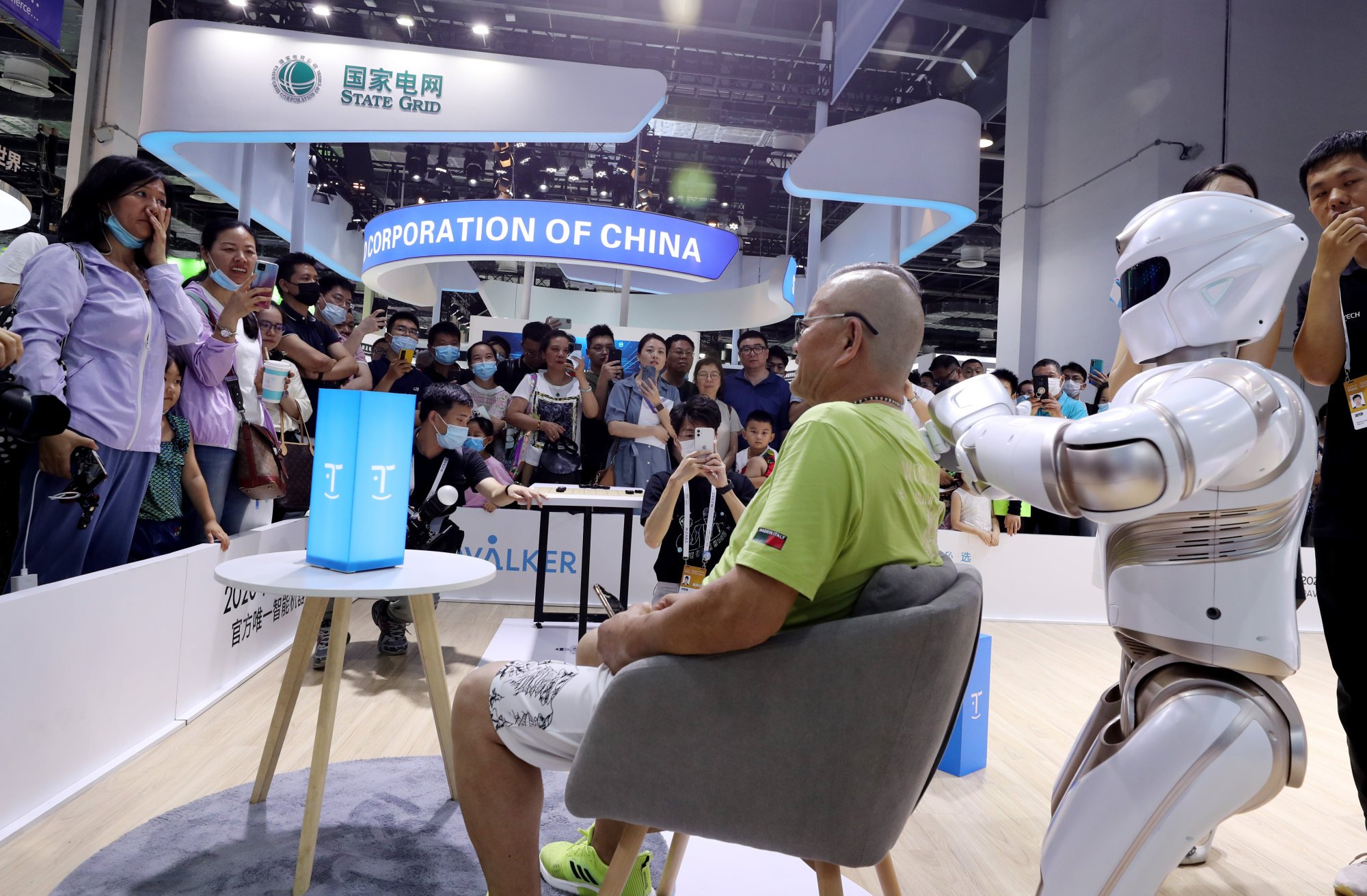
Shanghai renews call for global talent to join its AI industry amid US-China tech war, ChatGPT frenzy
- Shanghai officials have renewed their pledge to attract 20,000 to 30,000 AI talent to the Lingang Special Area, part of the city’s free-trade zone
- The city currently has the largest number of intelligent chip-design enterprises in China, but it lacks top algorithm talent, experts said
During the annual two-day Global AI Developer Conference held over the weekend in the Lingang Special Area, part of Shanghai’s free-trade zone, government officials renewed their pledge to attract 20,000 to 30,000 workers to AI and 500 related enterprises in the area by 2025.
“We strive to build Dishui Lake AI Innovation Port into a new highland for Shanghai’s AI development and an important gathering place for the national AI industry in the next three to five years,” said Chen Jinshan, Communist Party secretary of the Lingang Special Area, referring to an AI-focused industry park launched last August in the area.
The port will focus on the development of key technologies such as AI software and chips, quantum computing, the metaverse and other cutting-edge fields, with the aim of improving algorithmic and computational power, Chen said.
The goal has the blessing of the Ministry of Industry and Information Technology, one of China’s major technology industry regulators. “We will continue to support Shanghai, give full play to its advantages … and maintain the stability of the global supply chain,” said Ren Aiguang, deputy director of the ministry’s science and technology department.
Li Zheng, vice-mayor of Shanghai, said the city “sincerely welcomes first-class enterprises, innovative teams and outstanding talent in the AI field in China and abroad to choose Shanghai [as their home]”.

Shanghai currently has the largest number of intelligent chip-design enterprises in the country, laying the foundation for the development of “controllable” AI-generated content (AIGC) technologies, Zhang Ying, vice-director of the state-backed Shanghai Economic and Information Technology Commission, said at the event on Saturday.
However, Shanghai needs to accelerate the sector’s development as it still lags foreign countries in core AIGC technologies, Zhang said. A lack of “top algorithm talent” and a complete innovation system is also slowing development, according to E Weinan, a scholar at the Chinese Academy of Sciences.

Shanghai, home to a third of AI talent in China, drew up a blueprint last August to advance its AI industry, outlining various measures to foster entrepreneurship and strengthen supply chains.
In January 2022, SenseTime said it opened an AI data centre in the area, the largest facility of its kind in Asia, that expanded the company’s computing power by four times.
The Lingang Free Trade Zone, a 120 sq km (46 square miles) coastal area linked to the Yangshan Port by the Donghai Bridge, was developed under the instruction of President Xi Jinping in 2019. It is expected to evolve into a Hong Kong-style free port, allowing the unhindered cross-border flow of capital, cargo and talent.


